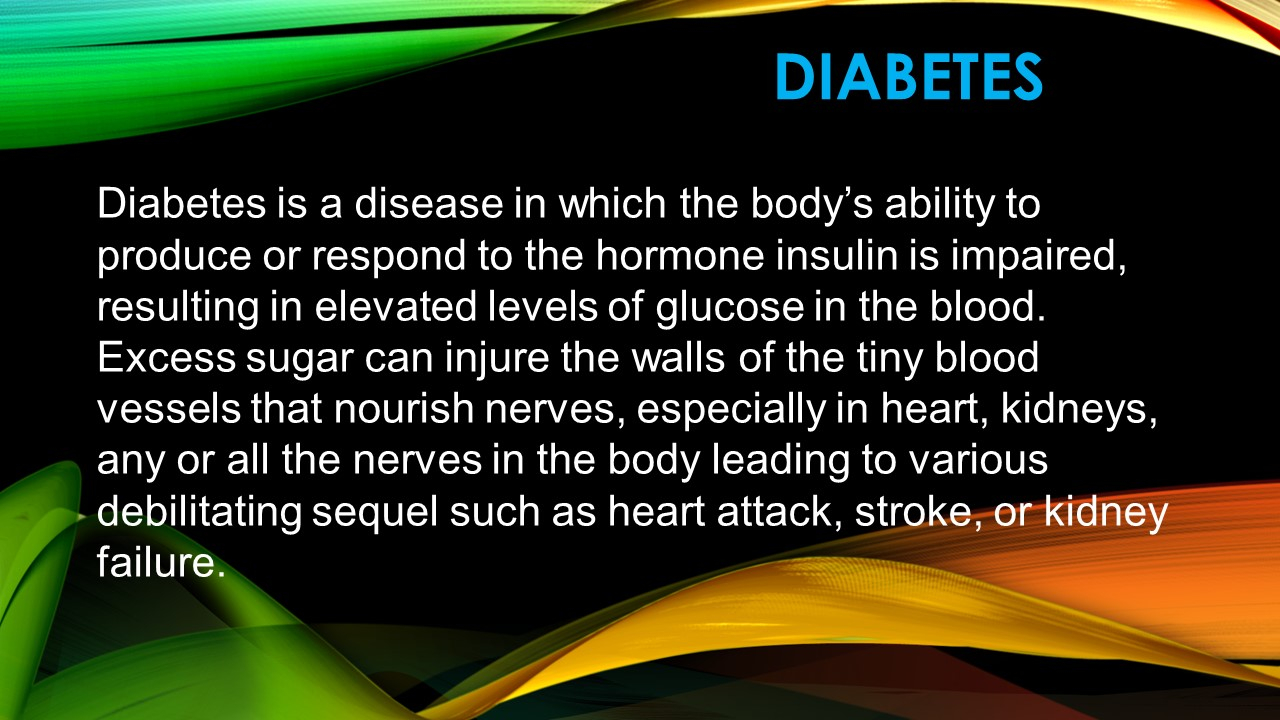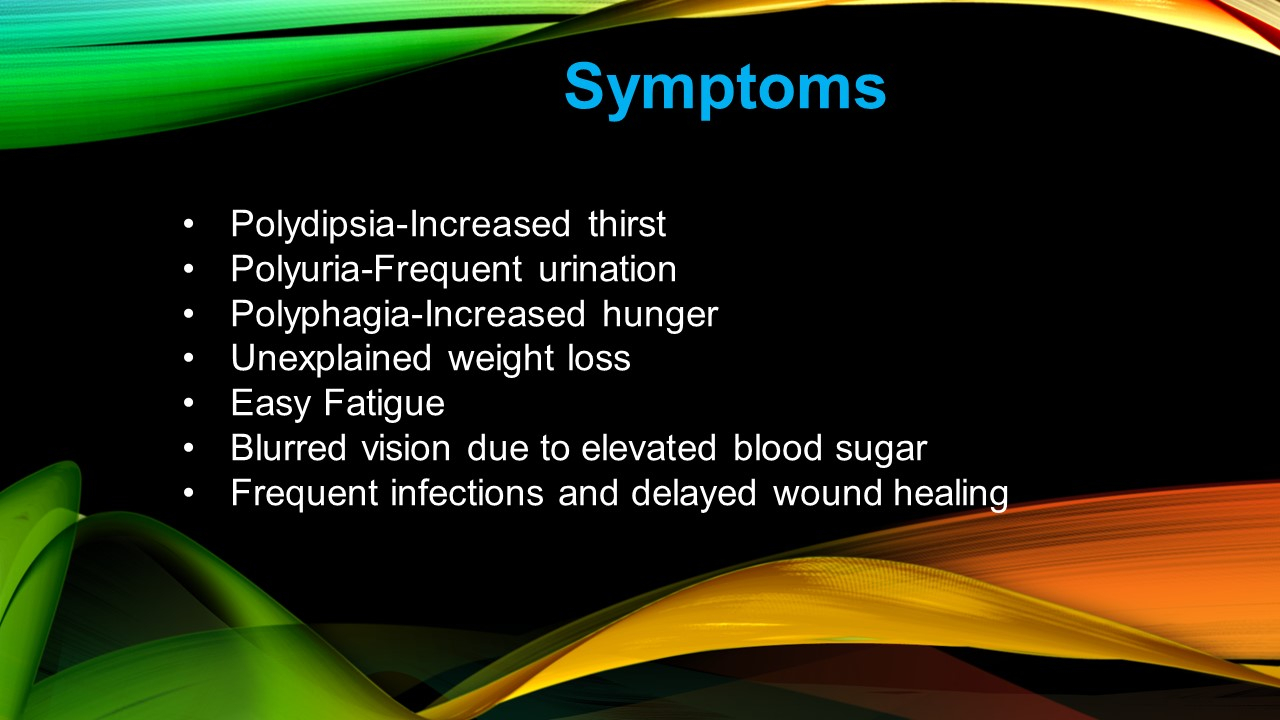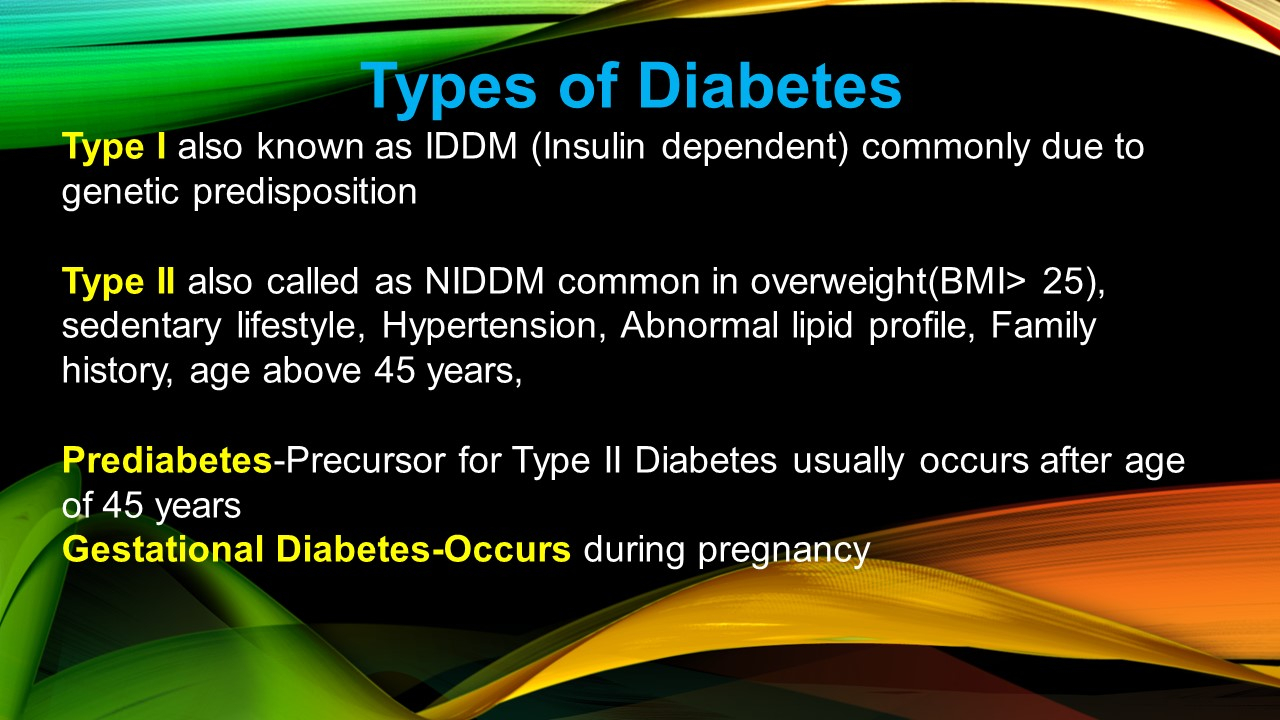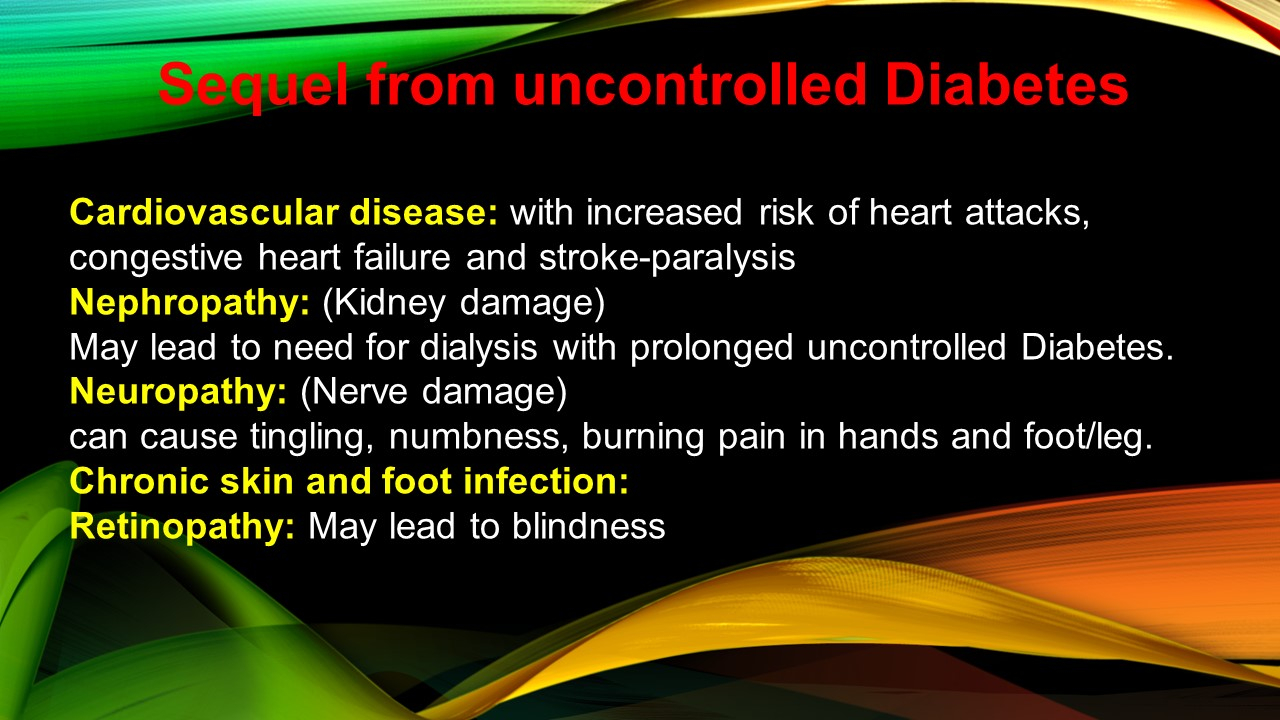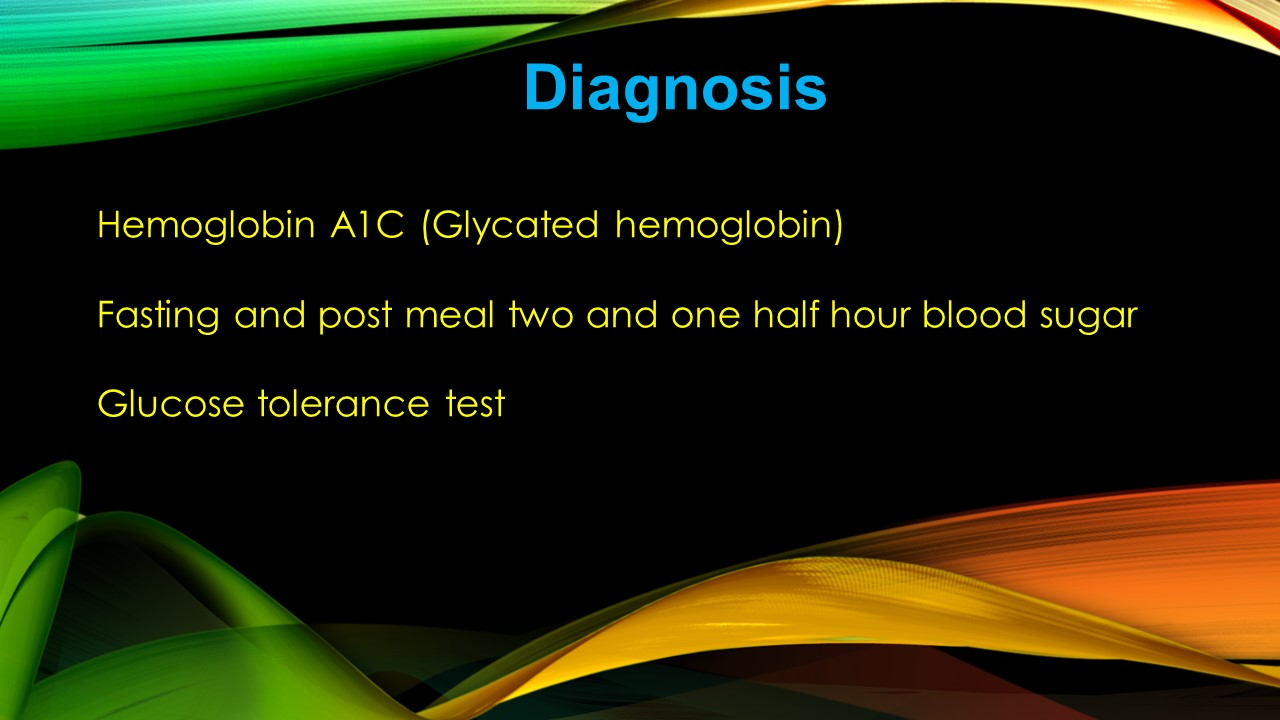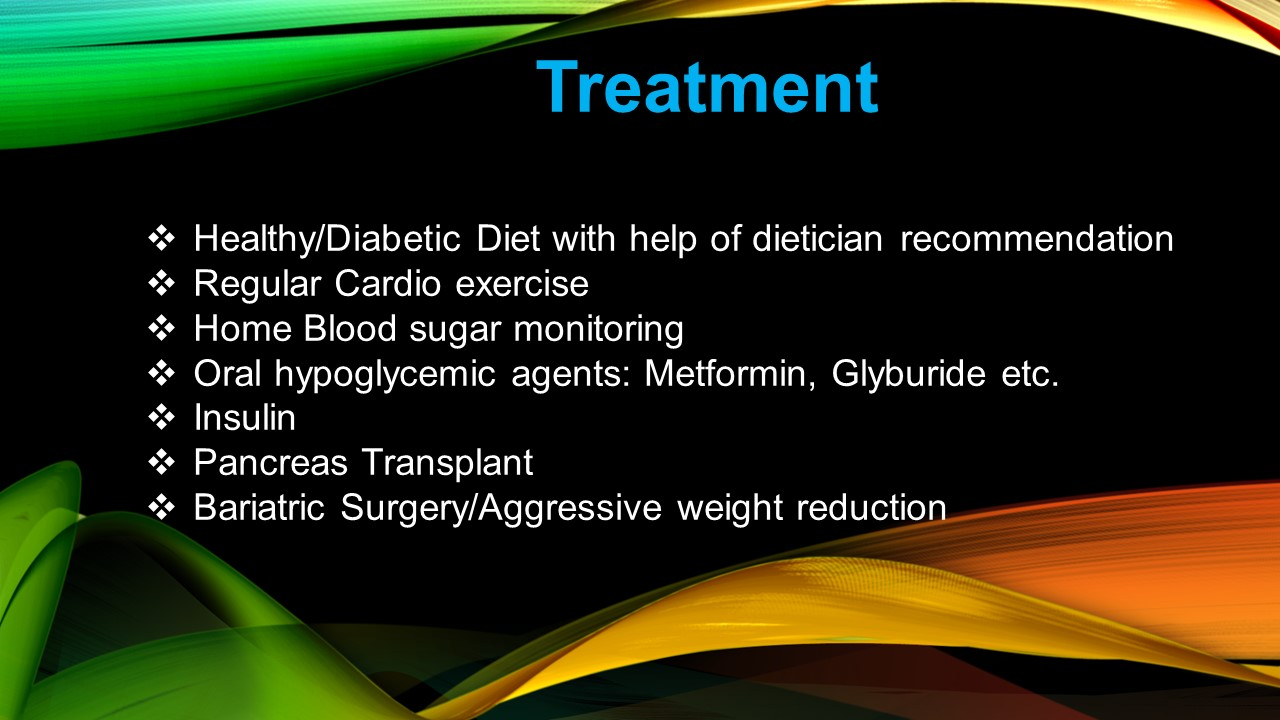Diabetes
Diabetes is a disease in which the body’s ability to produce or respond to the hormone insulin is impaired, resulting in elevated levels of glucose in the blood. Excess sugar can injure the walls of the tiny blood vessels that nourish nerves, especially in heart, kidneys, any or all the nerves in the body leading to various debilitating sequel such as heart attack, stroke, or kidney failure.
Symptoms
- Polydipsia-Increased thirst
- Polyuria-Frequent urination
- Polyphagia-Increased hunger
- Unexplained weight loss
- Easy Fatigue
- Blurred vision due to elevated blood sugar
- Frequent infections and delayed wound healing
Types of Diabetes:
Type I also known as IDDM (Insulin dependent) commonly due to genetic predisposition
Type II also called as NIDDM common in overweight(BMI> 25), sedentary lifestyle, Hypertension, Abnormal lipid profile, Family history, age above 45 years,
Prediabetes-Precursor for Type II Diabetes usually occurs after age of 45 years
Gestational Diabetes-Occurs during pregnancy
Sequel from uncontrolled Diabetes:
Cardiovascular disease with increased risk of heart attacks, congestive heart failure and stroke-paralysis
Nephropathy: (Kidney damage)
May lead to need for dialysis with prolonged uncontrolled Diabetes.
Neuropathy: (Nerve damage)
can cause tingling, numbness, burning pain in hands and foot/leg.
Chronic skin and foot infection:
Retinopathy: May lead to blindness
Diagnosis:
Hemoglobin A1C (Glycated hemoglobin)
Fasting and post meal two to two and one half hour blood sugar
Glucose tolerance test
Treatment
Healthy/Diabetic Diet with help of dietician recommendation
Regular Cardio exercise
Home Blood sugar monitoring
Oral hypoglycemic agents: Metformin, Glyburide,
Insulin
Pancreas Transplant
Bariatric Surgery/Aggressive weight reduction
- Take stress seriously.The hormones your body may produce in response to prolonged stress may prevent insulin from working properly, which will raise your blood sugar and stress you even more. Set limits for yourself and prioritize your tasks. Learn relaxation techniques. And get plenty of sleep.
